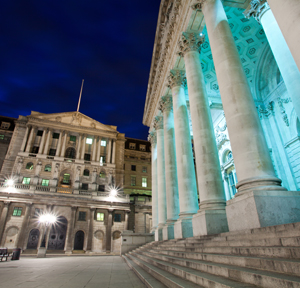PRA man to head up FCA
Chris Hamblin, Editor, London, 26 January 2016

HM Treasury has announced that Andrew Bailey will take over as the new permanent Chief Executive of the Financial Conduct Authority, probably in June. Bailey is a 'safe pair of hands' who currently runs the Prudential Regulation Authority.
Bailey has been an FCA board member since 2013 and therefore has a good grounding in all the regulatory issues that the UK's financial sector faces. John Griffith-Jones, the chairman of the FCA, has told the public that Bailey has operated in an 'independent' manner, a seemingly difficult thing for such a regulator to do in view of the fact that HM Treasury is the body that appoints people to the board of the Bank of England. The PRA website says that Bailey's term of appointment at the Bank runs from 1 April 2013 to 31 March 2018, which suggests that the Treasury decided to cut it short. His work in helping the Government to 'manage' the crisis of 2008 and then to develop the subsequent regulatory set-up is thought to have been considerable.
Tracey McDermott, the acting CEO of the FCA, recently told the nation during a BBC interview: "I think it's time for me to think about what I want to do in the future."
HM Treasury has also appointed four new non-executive FCA board members. They are as follows.
- Bradley Fried (CEO at the Kirsh Group and a founder of the investment firm of Grovepoint Capital who also does part-time jobs at the Bank of England).
- Baroness Sarah Hogg (chairman of the audit committee at John Lewis, a director at HM Treasury and a member of the Takeover Panel).
- Ruth Kelly (Blairite ex-politician who now sits on many committees).
- Tom Wright (CEO of Age UK).
This year Wright will be hosting a conference about ageing and cognitive decline and their effect on banking and insurance practice.
The PRA regulates about 1,700 banks in prudential matters and is at the moment a subsidiary of the Bank of England. The Bank of England and Financial Services Bill, however, proposes to turn it into a fully-fledged part of the Bank, after the fashion of the Monetary Policy Committee. If the Bill (introduced into Parliament on the 19th) becomes law, a prudential regulation committee will replace today's PRA board. Chancellor Gordon Brown gave the Bank its nominal independence in 1997. Since then, according to a spokeswoman, the Government has not owned it.












